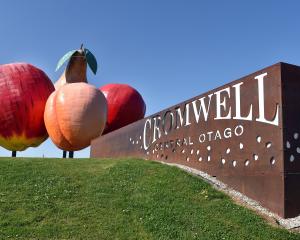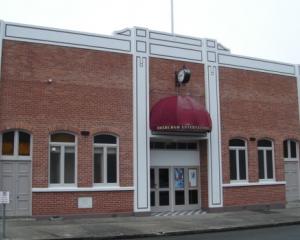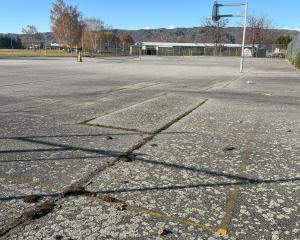A large-scale gold mine covering 163ha of land near Roxburgh should proceed, planning professionals have told the panel making the decision.
The future of the mine project will be determined at a two-day resource consent hearing before three commissioners in Alexandra next week, starting on Thursday.
Kokiri Lime Company Ltd has applied to the Central Otago District Council for resource consents to establish and operate the mine in the rural resource area. It has also sought water and discharge permits and land use consents from the Otago Regional Council and the two sets of applications will be heard jointly by independent commissioners.
Land at Coal Creek, north of Roxburgh, is the focus and the alluvial mine would operate for about 15 years, employing up to 10 people. The land in the planned mine path is used now for pastoral farming and horticulture and seven out of the 17 landowners involved have approved of the gold-mine plans.
District council planning consultant David Whitney has recommended consent be granted, subject to 57 conditions. Any adverse effects on the environment could be avoided, remedied or mitigated, he said.
Seventeen submissions were received by the district council on the application and 12 opposed the plans, four were neutral and one was supportive.
The opponents raised concerns about the potential effect on the waterway, noise levels, dust nuisance - especially on fruit and berry crops, vibration from machinery, increased traffic and the effects on the landscape. The operation would comprise an open pit that would advance along a 3.5km-long mine path. A gold processing dredge would float in the 25m by 25 mine pond.
"The mining activity is to be undertaken in relatively close proximity to a substantial number of dwellings,'' Mr Whitney said.
This distinguished it from other recent large-scale mining operations in the district, such as those at Earnscleugh and at Island Block.
The Roxdale Foods factory, the Central Packing Centre, two large roadside fruit stalls and several homes were near and within the planned mine path.
The mining company would take measures to mitigate the effects on air quality, the noise and dust nuisance, the effect on surface water and the visual effects.
After discussion with the Central Otago Environment Society, the mining company agreed it would not use any mercury or nitric acid on the site.
Mr Whitney said the positive effects of the mine included employment for 10 people for at least 15 years and the spin-offs from their spending in the district.
Census figures showed the Teviot Valley's population had fallen by 2.8% in seven years and Roxburgh's population decreased 15.1% in that time, while the population of the whole Central Otago district had increased by 7.5%.
"In our view it is appropriate to acknowledge that the positive effects of the proposal in terms of employment and economic activity will be experienced in a part of the district which has experienced population decline in recent years,'' he said.
A 20-year consent had been sought and a bond could be imposed, a community liaison committee set up and an amenity trust fund established for the benefit of the community, as happened at Earnscleugh.
The regional council received 10 submissions on the application. Six opposed the plans, two were neutral, one was supportive and one did not specify its stance. The regional council's senior consents officer Ralph Henderson also recommended consents be granted, subject to conditions.
The mine would provide benefits relating to employment and socioeconomic wellbeing.
Comprehensive monitoring, operational management and careful planning should result in significant adverse environmental impacts being avoided, remedied or mitigated, he said.












